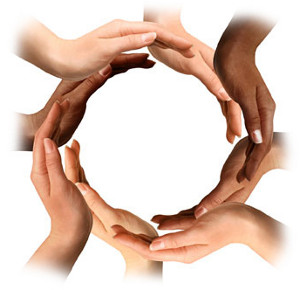friend
noun
1. A person attached to another by feelings of affection or personal regard.
2. A person who gives assistance; patron; supporter: friends of the Boston Symphony.
3. A person who is on good terms with another; a person who is not hostile: Who goes there? Friend or foe?
It would seem a simple thing, defining who and what a friend is. Deciding who is your friend is a fairly simple process.
Do I like that person?
 Yes.
Yes.
Does that person like me?
Allegedly.
Do we enjoy each other’s company?
Mostly.
Okay…then, I think we can safely assume that the two people cited above are friends.
Friendships have been forged since man decided to get up off his haunches and walk on two legs. Of course, back then deciding who was your friend had more to do with the amount of trust in mutuality. Could you go to sleep knowing that person will remain awake and alert to danger? Will that person share his food when you have none? Will that person help or protect you in times you are not able to help or protect yourself?
Those were weighty considerations and friendships were born more out of the ability to survive another sunset rather than if they made a good Spades partner.
People have become friends basically the same way for hundreds or thousands of years. But that all changed not too long ago. The method by which many people became friends happened with the flip of a switch…the switch that turned on the Internet.
Some would argue that “friendship” has been cheapened by instantaneous communication. There isn’t any tangible process or physical path to friendship online…at least, not in the way it’s been traditionally defined. I mean yeah, the two of you have fun together online. She makes you laugh. He is concerned when he doesn’t hear from you in a timely manner. You have a good time when you are online together.
But you’re not…together. That is, you’re not really together.
You don’t know whether she does That One Thing you can’t stand someone to do in your presence, be it sucking her teeth after eating or moving her lips while she’s reading. Maybe she is completely put off by some little habit you have. Or several habits. The fact is, you two don’t know anything about each other, aside from what you read and what you can find out via an Internet search. Your friendship hasn’t been exposed to any acid tests to prove or unravel it.
So what happens when that years-long online friendship comes to the point of you two meeting? It’s a crap shoot, to say the least about it. You just never know…
Until you do.
Dr. Ed Matthews has been our “friend” for a number of years. “Our” friend as in Diane and me. I became friends with Ed when he started commenting on The Blog of Helios. We began an online friendship; I guess it was 2010 or so. The more we emailed and talked on the phone, the stronger our friendship became. Diane and Ed spend 30 minutes on the phone every few days or so. And trust me, that is definitely a pair to draw to.
And then I got sick. Really sick. I was diagnosed with Stage IV throat cancer. As if that wasn’t bad enough — and unbeknownst to me — I was stuck in the middle of the Veteran’s Administration scandal. As it turns out, my request for medical treatment, along with millions of other requests, were answered by putting them through a paper shredder.
 Three other “friends” took quick action by starting a fund raiser for my treatment and medical bills. They raised over 50 thousand dollars for me.
Three other “friends” took quick action by starting a fund raiser for my treatment and medical bills. They raised over 50 thousand dollars for me.
That was done by my “friends,” people I had never met personally and most likely never will.
Just as soon as that campaign started, an extremely generous donation was made to my fund. I won’t embarrass Ed Matthews any more than I already am, except to say that he matched that extremely large donation a few days later…and then again in a few more days. We should all be so lucky to have friends like Dr. Ed Matthews.
Not too long ago, we were finally able to meet and spend some time together.
It wasn’t under the best of circumstances. I had just been told that I would require surgery to remove my larynx in order to completely cure the cancer reoccurring in my throat. Diane can’t be left by herself for any length of time and my hospital stay will be two weeks, maybe more. She was crippled by back to back strokes in 2012 and she relies on me or others to help her. That’s what prompted Ed Matthews to get into his car and drive 500 miles to our house. If I had to go into surgery immediately, Ed didn’t want Diane to have to stay by herself.
Now, you can dance and whirl with my definition of what a friend is, but when all your dancing and whirling is done, the fact remains…the irrefutable fact that Ed Matthews is our friend.
I can hear it now. “But Ken…Ken,” you ask, “what does this have to do with Linux?”
Everything. Let me repeat: “I became friends with Ed when he started commenting on The Blog of Helios.”
Had I not started a blog about Linux and the project we do while using Linux as our prime mover, Ed Matthews and I would have not met. Ever.
Linux is a global community…a quarrelsome community, I will give you that, but a community nonetheless. We are richer by many degrees for our links to each other within this community. We are friends within the Linux community. A community where real friendships do in fact begin.
And as for Ed Matthews? They most certainly broke the mold…and to me, the world is poorer for that. We need a lot more Ed Matthews in this world, within or outside of the Linux community.
Ken Starks is the founder of the Helios Project and Reglue, which for 20 years provided refurbished older computers running Linux to disadvantaged school kids, as well as providing digital help for senior citizens, in the Austin, Texas area. He was a columnist for FOSS Force from 2013-2016, and remains part of our family. Follow him on Twitter: @Reglue









The ‘community” is made up of developers and users. Users are welcome, perhaps even sought, up to the point where they express some disappointment or dissatisfaction, at which point they are bluntly informed that they are “just users, whose opinions are unwelcome and they’d better shut up and put up with whatever issue they have, unless they’d like to learn to code and produce an alternative solution themselves.”
I am an at-home end user. I agree with Salparadise and I will go a little further. Experienced and/or professional Linux users answer questions only in the easiest way, that is as if each user were already an expert. Even though I get into trouble, I almost never ask questions in the forums. The tone of the answers is not only unpleasant, it is uninformative to me at my level of understanding.
I am aware of the value of community, both in person and online. I have truly valuable friends in my 12-step recovery communities (in-person and online) and in online communities devoted to my issues and my interests. I just cannot count any of those among the Linux community.
Salparadise and Calvin R, I’m sorry you’ve had these experiences. There aren’t many in the Linux community who will try to tell you they don’t happen, because most of us have seen them. Further, I regret that I can’t tell you how to avoid the unpleasantness and, honestly, hurt that comes with dealing with some of the people in the groups. It isn’t fun being pooped on.
I went back to reading and sometimes responding in one of the Usenet groups a little while back. I wasn’t surprised that jerks were still being jerks. The behavior I recalled from times gone by was there. What surprised me was the amount of it that was initiated by jerks pretending to be people seeking help. Some of them are probably shills for that other OS and some seem just to enjoy stirring up stuff. One particular user comes to the group with a problem installing a particular Linux distro or with a hardware problem or configuration issue or whatever. Whatever it is, a few people seek to understand the issue and try to help, but their efforts are never successful. When it winds down he says he doesn’t understand how we Linux users can put up with all the frustration and misery and failure. [Whatever the challenge was] should be as easy to do successfully as it always is, according to him, with that other OS.
Yes, he took me in a few times over a few weeks. I gave up and he’s now “killfiled,” so his messages automatically go my trash. However, there are sincere people always coming into the group who will try to come to his aid. And they’ll get stomped on, too. Next week, after he’s alienated this group, there will be other new people who will try to help. He must have a lot of time available to make up these problems and lead the would-be helpers on so they can receive his insults.
I guess my point is that it’s not just the experienced Linux users who are causing the problems. To complete the circle, sometimes the experienced user honestly wanting to help could mistake a sincere newbie for a shill or troll and let fly with words he might otherwise wish he hadn’t.
My suggestion for you? DEFINITELY not perfect, but find a friend. Someone local who knows Linux well enough and has time enough to help get you going. I’d love to be able to tell you where to find such a person. (Told you my idea wasn’t perfect.) You’d like the person to be in your area so you and she/he could look at your computer and figure out how to get it to do what you need. I’m sorry I can’t do better.
We in the computer user communities don’t have an exclusive on this. There are people in the antique car groups that will tell you that you’re an absolute idiot if you think you adjust the vibrator points on a Model T coil with a small wrench. And they certainly won’t tell you that the tools are a tiny hammer and a little bitty pry bar. Read That Fine Manual!
The problem is humans are human and sometimes some of them are not nice humans. Sometimes some folks gotta be better/smarter/richer/etc than others and shove them down meets their needs. I’ve been a jerk, too. There are soooooo many words I’d like to take back from 20 or 30 or 40 years ago or unfortunately, not so long ago.
Be a friend, if you can.
@ Uncle Geek
Thanks for the sentiment.
I tried a couple of LUGS – someone stood up at one and said “if you’re new to Linux, please don’t come to LUG meetings, because you annoy those of who know what we’re doing”.
I didn’t go back.
So for me, use of Linux has been a 12 year exercise in loneliness. I didn’t expect to ‘make a new friend every day’, but I have to admit to being thoroughly depressed over the nitpicking, self-appointed superiority, technical elitism, distro-loyalty and downright autistic spectrum personality disorders I’ve come across.
The Linux community is absolutely awful at friendship.
My experience echoes salparadise’s. My experience with a LUG was only slightly more polite.
I have encountered various styles of troll on the Internet. I dislike all of them, but I am not one. Nor are most of the Linux newbies on these lists.
I love the Internet. I have made friends on several lists and/or blogs that are valuable and wonderful folks. One group of those helps me deal with my learning disorder. This particular learning disorder has a resemblance to Asperger’s Syndrome, which actually is on the autism spectrum. Those people, while not always socially capable, treat me and each other much more civilly than Linux people have done.
Technical groups tend to be less forgiving and have a higher ratio of jerks then non-technical ones. Microsoft’s own ITPro forums are full of the same trolling, RTFM, and fanboyism as any Linux group I’ve ever seen.
The solution is to ignore them. Many forums have block lists that allow you to not see posts from idiots. That allows you to filter out the nonsense and see the people who are sincerely trying to help, or in need of help. If the forum doesn’t have such a feature, then just post as if those people aren’t even there.
There are genuine people out there…but as with all things, the best skill you can have is being able to filter the garbage from the gold.
@salparadise – I have family with Asperger’s. It is unfair to those on the spectrum when people use terms like autistic behavior as a synonym for being an asshole.
@salparadise – I have family with Asperger’s. It is unfair to those on the spectrum when people use terms like autistic behavior as a synonym for being an asshole.
My apologies if I’ve caused offence.
I have family who are the same and am somewhere on that spectrum myself. One tends to fall into the trap of thinking “if I suffer from/as a result of a condition, I get to make humour out of it” and forget that others might not appreciate that context.
@Mike, yes there are rat bags everywhere, and blaming it on autism spectrum disorders IS a bit unfair, although, to be fair some of it is indeed exactly because of that, as a consequence…
@Sal, I don’ really see the need for you to appologise.
I too am on the spectrum, and in my Not very humble opinion, if one cannot see the humour in that, in one’s odd quirks, and by extension the odd quirks of others also on the spectrum, I think one has lost all pespective, and one’s sense of humour as well, and there is really no hope.
@salparadise
No problem. I didn’t really read your post as an attempt at humor. I just feel that people on the spectrum have enough social stigma to deal with as it is without being lumped together with people who are just pricks.